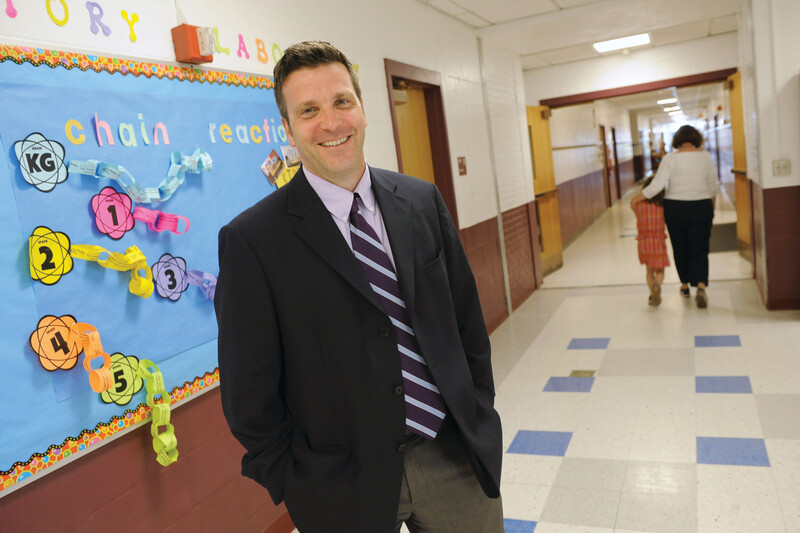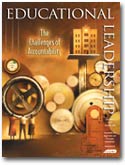When I was a teacher, I often wondered what exactly school administrators did. Only after I became an administrator did I realize that the job is far too complicated to simplify into a job description, far too challenging not to command respect, and far more rewarding than can be understood until one has tried it. Having completed two years as an assistant principal, I can share some lessons that may be useful for the rookie administrator.
Remember the teacher's challenges. More often than not, relating with students as an administrator is less complicated than it is for a teacher because you do not have to deal with groups of students day in and day out. As an administrator, I usually talk with students individually, without a time constraint, in a quiet, controlled setting, and with nothing else competing for my attention. Teachers do not have these luxuries. Remind yourself of this difference often and share this insight with students and parents.
Visit classrooms at least once a week. Teachers often complain that administrators do not remember what it is like to be a teacher. Frequent classroom visits help refresh your memory and build relationships with teachers. By being visible, you can foster a comfortable rapport with your staff and the student body.
Get to know the students. Build personal relationships; know students by name. My former school had 800 students. Too many to know by name? Then at least know them by face. Before the school year begins, I review the students' pictures in the yearbook and memorize as many names and faces as I can. Throughout the year, I look for students to get to know. Every personal connection you make with students reminds them that you care.
Spend time with students. I am an avid sports fan and particularly enjoy basketball. As a way to connect with students, I started a weekly after-school basketball program in conjunction with Healthy Start. Before I knew it, more than 25 students were attending. They talked about it during the week and the word spread: “Miss Lee plays basketball, and she is good!” Basketball gives me an opportunity to talk to the students about their schoolwork, home life, and personal issues. The time that you spend with students will regularly replenish your heart for them.
Trust your professional judgment. A few parents will always want to second-guess your decisions. Sometimes I discuss a discipline issue with my principal before I assign a consequence. These conversations help us come to a consensus and give me the confidence to call parents to notify them of an incident. Even then, some parents either cannot believe that their child did anything wrong, or they find the consequence unacceptable. Listening to parents is important; however, you will have to stand by your decision 95 percent of the time. Make sure that you have the support of those above you, and remember that you are the trained professional.
Reenergize apathetic staff members. Your staff will undoubtedly include at least one person whose passion for teaching died years ago—the teacher who works for the paycheck, longs for Friday on Monday, maintains the status quo, and does not see the value in learning new ways to teach. Give this teacher some release time to observe your outstanding teachers. Send him or her to a conference with good teachers from your staff. Have him or her take on a new role at school. Whatever you do, do not allow this teacher to continue being apathetic.
Build relationships outside of school. I remember the first time that I saw one of my 3rd grade students at the local mall. Her big blue eyes opened wide in disbelief. “Miss Lee!” she gasped. “What are you doing here?” I am sure she thought that I lived at school. Often, we, too, forget that our staff members have a life outside of school. We forget that teachers have families, hobbies, and talents. Get to know the interests of each person on your staff. How much you can learn from one another and how much you may have in common will pleasantly surprise you. Spending a few hours on the golf course or eating a meal together allows time to talk on a personal and professional level. These shared experiences will help build a healthy, trusting school climate.
Choose wise advisors. Talk to other administrators whom you trust and respect, often. Mounting pressures from high-stakes state testing and federal initiatives are too burdensome to be carried alone. The U.S. President has advisors. Every major corporation has a board of directors. Even Luke Skywalker has Yoda. Asking for help is acceptable; discussing your questions and concerns with fellow administrators is crucial. Network with local administrators, former graduate school professors, and friends who are administrators. These people will be your best support system.
Set priorities. Fall choir concert. Football game. Talent show. Board meeting. All during the same week? It's OK to say no. If you have to work late a few days during the week, leave on time on the days that you do not have to stay late. If you don't set priorities, you will burn out.
Balance your life. Working 14 hours a day, thinking about work 4 hours a day, and sleeping 6 hours a day does not make you effective. When work needs to be done, work assiduously, but take time to spend with your family and friends. Take a day off here and there. Take time to reflect. Exercise. Never let work, regardless of how valuable it is, become your life.

